






1. こんにちは。 (Konnichiwa. Hello.) 2. こんばんは。 (Konbanwa. Good evening.) 3. さようなら。 (Sayonara. Goodbye.) 4. お願いします。 (Onegaishimasu. Please.) 5. どういたしまして。 (Douitashimashite. Thank you.) 6. いただきます。 (Itadakimasu. I give thanks for the meal.) 7. ごちそうさまで。 (Gochisousama deshita. Thank you for the meal.) 8. おはようございます。 (Ohayou gozaimasu. Good morning.) 9. こんばんは、お元気ですか。 (Konbanwa, ogenki desu ka. Good evening, how are you?) 10. これは何ですか。 (Kore wa nan desu ka. What is this?) 11. お願いします、お願いします。 (Onegaishimasu, onegaishimasu. Please, please.) 12. じゃあね。 (Jaa ne. Bye-bye.) 13. いいえ、お願いします。 (Iie, onegaishimasu. No, please.) 14. はい、どういたしまして。 (Hai, douitashimashite. Yes, thank you.) 15. すみません、お手々をfoutします。 (Sumimasen, o te o foutoshimasu. Excuse me, I'll be right back.) 16. お待たせしました。 (O machigatte shimashita. I'm sorry to keep you waiting.) 17. お先に失礼します。 (O sae ni shitsurei shimasu. I'm sorry to be the first to leave.) 18. 何か手伝いできますか。 (Nanika tetsudai dekimasu ka. Can I help you with anything?) 19. どういたしまして、ありがとうございます。 (Douitashimashite, arigatou gozaimasu. Thank you very much, you're welcome.) 20. ごめんなさい、私、エリーです。 (Gomen nasai, watashi, Eriru desu. Sorry, my name is Eriru.)
1. "こんにちは。" (Konnichiwa. Hello.) - This is an informal greeting that is commonly used during the day. It is used to greet someone you know or to initiate a conversation. For example, you might say "こんにちは、お元気ですか。" (Konnichiwa, ogenki desu ka. Hello, how are you?) when you see someone you know and want to ask how they are doing. 2. "こんばんは。" (Konbanwa. Good evening.) - This is a formal greeting that is used in the evening. It is used to greet someone you know or to acknowledge their presence. For example, you might say "こんばんは、お元気ですか。" (Konbanwa, ogenki desu ka. Good evening, how are you?) when you see someone you know and want to ask how they are doing. 3. "さようなら。" (Sayonara. Goodbye.) - This is an informal farewell that is commonly used when you are leaving someone's presence. It is used to say goodbye to someone you know or to acknowledge their departure. For example, you might say "さようなら、またね。" (Sayonara, mata ne. Goodbye, see you later.) 4. "お願いします。" (Onegaishimasu. Please.) - This is an informal request that is used to ask someone to do something for you. It is often used as a polite way to make a request or to ask for help. For example, you might say "お願いお願いします、このファイルをオープンしてください。" (Onegaishimasu, onegaishimasu, kono file wo open shiite kudasai. Please, please open this file.) 5. "どういたしまして。" (Douitashimashite. Thank you.) - This is an informal expression of gratitude that is used to thank someone for something they have done for you. It is often used as a polite way to acknowledge someone's help or kindness. For example, you might say "お手伝いをありがとうございました。" (O tetsudai wo arigatou gozaimasu. Thank you for your help.) 6. "いただきます。" (Itadakimasu. I give thanks for the meal.) - This is an expression of gratitude that is commonly used at the beginning of a meal. It is used to show respect for the food and to acknowledge the efforts of the person who prepared the meal. For example, you might say "いただきます、ごちそうさまで。" (Itadakimasu, gochisousama deshita. I give thanks for the meal, thank you for the meal.) 7. "ごちそうさまで。" (Gochisousama deshita. Thank you for the meal.) - This is an expression of gratitude that is commonly used at the end of a meal. It is used to show appreciation for the food and to thank the person who prepared the meal. For example, you might say "ごちそうさまで、おいしかったですね。" (Gochisousama deshita, oishikatta desu ne. Thank you for the meal, it was delicious.) 8. "おはようございます。" (Ohayou gozaimasu. Good morning.) - This is an informal greeting that is commonly used in the morning. It is used to greet someone you know or to acknowledge their presence. For example, you might say "おはようございます、お元気ですか。" (Ohayou gozaimasu, o
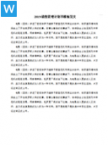
感恩父母,是我们生命中最重要且最深沉的情感。以下是关于感恩父母的文案,希望能够触动心灵,表达对父母的爱与感激: 1. **父母是生命中最初的守护者**。他们用无私的爱,温暖了我们每一个成长的瞬间。在他们无尽的付出中,我们学会了爱与被爱。 2...
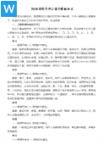
1. "你就像阳光,照亮了我所有的日子。" 2. "遇见你是我生命中最大的幸运。" 3. "我想和你一起走很长很长的路。" 4. "你让我的生活变得更加精彩。" 5. "在你身边,我总能感受到温暖。" 6. "每个微笑都是我向你表白的方式。...
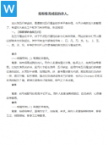
怀念过去的说说往往充满了对往昔美好时光的回忆与感慨。以下是一些关于怀念过去的说说示例,希望能激发你的灵感: 1. **岁月如歌,回忆永不褪色**。那些年,我们一起走过的日子,仿佛昨天才发生,此刻却已成永恒。 2. **怀念那个无忧无虑的年代...
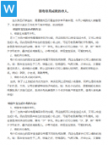
叔本华(Arthur Schopenhauer,1788年2月22日—1860年9月21日),德国著名哲学家,唯意志论的创始人,悲观主义哲学的代表人物。以下是他的一些基本信息: 1. **出生与教育背景**: - 叔本华出生于1788...
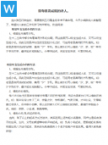
三岛由纪夫(1925-1970),日本战后著名的小说家、剧作家和诗人,以独特风格和深邃的哲学思考著称。以下是三岛由纪夫的一些经典语录,这些语录反映了他对人性、艺术、社会、战争等主题的深刻见解: 1. "人是被赋予了自由意志的,也是可以自由毁...
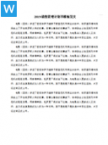
理想的实现不仅仅是通过努力和毅力,还往往受到那些为之奋斗的名人的启发。以下是一些关于理想的名人事例,展示他们如何通过坚持追求、创新、激情和决心,实现了自己的梦想: 1. **托马斯·爱迪生**:被称为“发明大王”,爱迪生一生发明无数,其中最...
Copyright @ 好写作网 All Rights Reserved. 版权所有 粤ICP备2023147452号-1